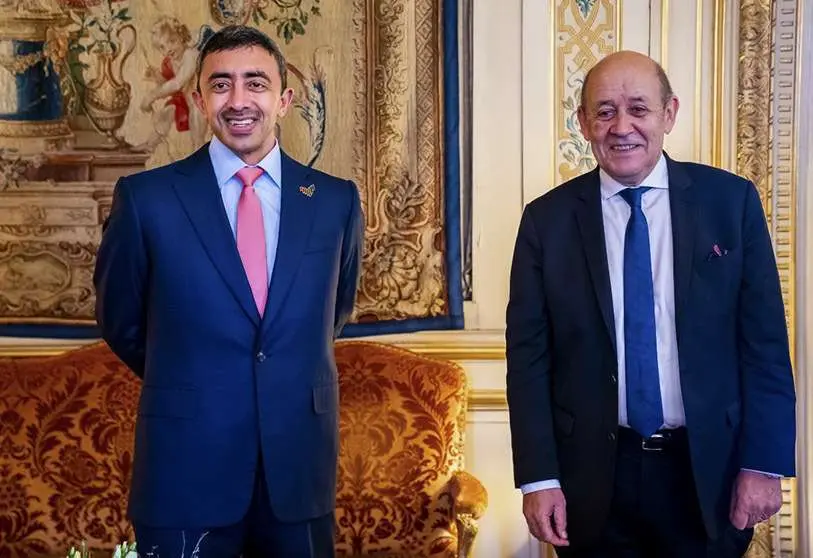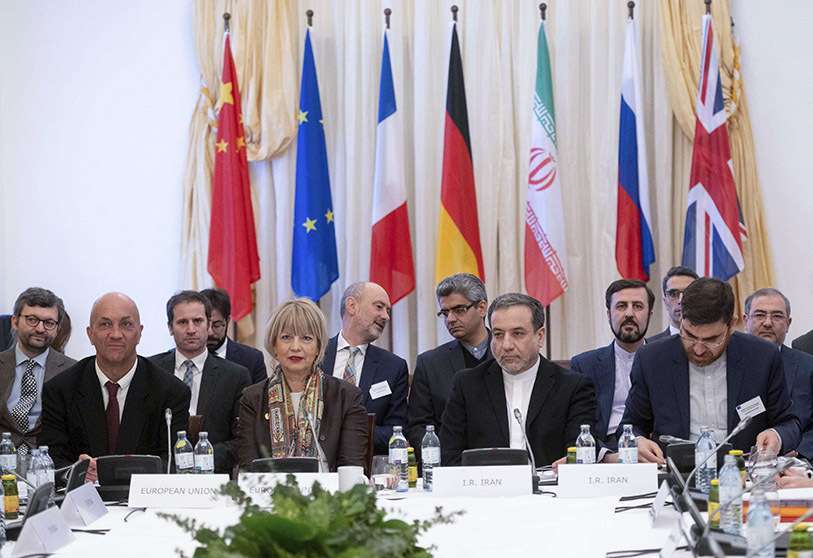Emirates and France discuss bilateral relations at Paris meeting

The Foreign Minister of the United Arab Emirates, Sheikh Abdullah bin Zayed, has visited Paris for a meeting with his French counterpart to discuss various issues affecting the two countries. Bilateral relations between Paris and Abu Dhabi go back half a century, and have since borne fruit in the form of interesting projects within the framework of their strategic partnership.
The foreign ministers discussed several of the most important issues affecting the Middle East region. Both were optimistic about the talks on Libya that have been taking place in Egypt in recent days, which have led to significant progress. The Israeli-Palestinian conflict and how to move the peace process forward were also on the table. The UAE Ministry of Foreign Affairs has indicated in its communiqué that the two countries are firmly committed to peace and stability in the region.

Other aspects such as the evolution of COVID-19 and the impact it is having on both countries and the world at large were also on the table. Paris and Abu Dhabi have agreed to work to ensure that the coronavirus vaccine is accessible to all countries in the world without exception, something for which Emirates has already developed several proposals such as The Hope Consortium, which will stockpile and distribute the vaccine to those countries with the greatest health deficits.
The UAE is a key ally of Paris, as several aspects demonstrate. First, Abu Dhabi hosts the only French base outside its territory or the African continent. Moreover, two of the country's most important institutions, the Louvre Museum and the Sorbonne University in Paris, have recently opened offices in the Gulf country, thus strengthening cultural and academic ties.

The coincidence of the meeting with Joe Biden's arrival in power has also made it necessary to mention other issues related to Iran. The French foreign minister did not miss the opportunity to call on Tehran to return to the negotiating table and fulfil its commitment to the nuclear agreement reached in 2015.
France, one of the nuclear powers party to the agreement, remains concerned about the direction the JCPOA has taken following the US exit from it and the increase in uranium enrichment being carried out by Iran in response to US actions. European countries hope that the arrival of Joe Biden can bring the US back into the nuclear deal, or at least offer an alternative to the hard line taken by former president Donald Trump.

Jean-Yves Le Drian has expressed the importance of Iran's resumption of its commitments to de-escalate tensions in the region and increase stability. Iran has been conducting military tests and manoeuvres in recent weeks that have caused concern in the Gulf capitals, especially Abu Dhabi and Riyadh, which see Iran's external action as increasingly aggressive.
The new US Secretary of State, Anthony Blinken, has affirmed the new president's desire to develop a stronger, long-term agreement with Iran in an attempt to put an end to the instability in relations between the two countries. For its part, Iran has welcomed this intention and assured that it is up to the United States to take the first step. "If they comply, so will we", said Iranian leader Rohani.









